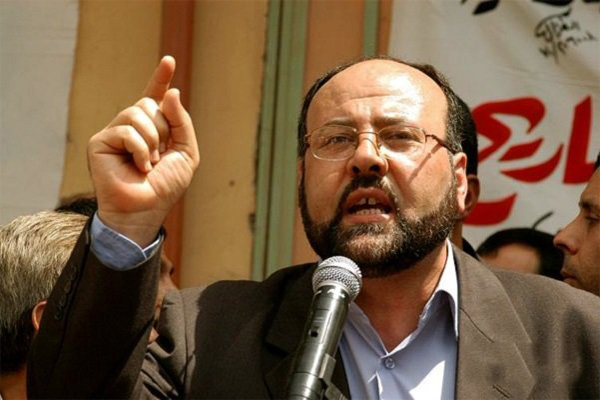Netanyahu's gov. must pay the price for crime in Khan Yunis: Hamas senior spokesman

TEHRAN - In the aftermath of the Zionist regime's infiltration of the Gaza Strip, which targeted and killed an Izz al-Din Qassam brigade commander, there were many questions raised about the incident. Why, for example, did the Israelis do it? It smashed the ceasefire information, but now apparently the ceasefire is back on again.
Israeli special forces made their way into the coastal sliver using a civilian vehicle which resulted in a drive-by shooting near the city of Khan Yunis in southern Gaza. Assassinated was Nour Baraka, a senior commander in Hamas’ military wing.
In the clash, a Zionist officer was also killed and another wounded. The subsequent Israeli airstrikes killed five other Palestinians, including another commander with the Palestinian resistance movement.
The group defined the exact place where the targeted killing took place as the area of the Shahid Ismail Abu Shanab mosque, three kilometers (1.8 miles) east of Khan Yunis.
Mehr News Agency spoke to Ali Baraka, a senior member of the Palestinian Hamas movement in Lebanon. Following is the full text of the interview.
Q. What was behind the recent Zionist crime in the Gaza Strip and the assassination of one of the Hamas leaders? What is your assessment of the Israeli take on the cease-fire agreement in recent days?
A. The Zionists failed to fulfill their goals during a security operation near the city of Khan Yunis in southern Gaza on Sunday. The purpose of the attack was to abduct Nour Baraka, the military commander with al-Qassam, but al-Qassam battalions fought back with this special Zionist military group and imposed heavy damages on them.
The Zionist regime also confessed to the death of their unit commander who was a colonel. After that, the Zionist Air Force entered operations and created a cover for the retreat.
We declare that the Zionist regime is a wicked enemy who is not after peace and does not adhere to agreements. For this reason, the resistance forces ambushed them and defeated their criminal operations.
Q. How did the resistance groups respond to the Zionist aggression, and what decisions have been made about that?
A. Naturally, security forces - the Islamic Resistance Movement - have begun investigations into the Zionist operation on Sunday. In the joint operation room, the resistance groups decided to respond to the Zionists to stop them from committing such crimes again.
So, the resistance group sent a message to the enemy, given the missile response. Blood for blood is the response. The enemy will pay for its crimes against the Palestinian people.
Accordingly, on Monday evening, resistance groups from the Gaza Strip responded to the Zionists and hit Zionist settlements. Netanyahu's government must pay the price of Sunday's crime in Khan Yunis.
Q. Is the Zionist attack on Gaza linked to the turbulent internal state of Israel as Netanyahu seeks to distort public opinion about its corruption?
A. The Zionist attack on Gaza had to do with Israel’s domestic and political situation. Benjamin Netanyahu, the enemy's Prime Minister, and Avigdor Lieberman, Defense Minister of Occupied Palestine, wanted victory in the Gaza Strip as they were seeking achievements in the next year's parliamentary elections, but the opposite happened. The head of Israeli Army headquarters also sought achievement against the Palestinian resistance group, but they all failed. God is dominant.
The resistance group continues to respond to the Zionist aggression and it is the resistance that decides to stop the clashes rather than the enemy.
